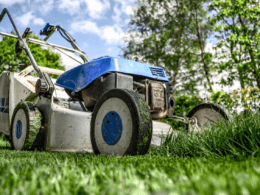Are you looking for a new ingredient to add to your composting routine? Look no further than pistachio shells! These little shells may seem like an unlikely candidate for composting, but they actually have a lot to offer.
Not only do pistachio shells break down over time and provide bulk, moisture retention, and nutrients to your compost, but they also have a surprising impact on the safety of your composting process.
By incorporating pistachio shells into your compost, you can avoid potentially harmful chemicals and additives found in other composting materials. So why not give pistachio shells a try and see the benefits for yourself?
Quick Takeaways
- Pistachio shells are natural and take a long time to decompose, but can provide bulk, carbon, and nutrients to compost while reducing landfill waste.
- Crushing shells, balancing with green/nitrogen-based parts, and turning compost more often can speed up the breakdown process.
- Vermicomposting with pistachio shells is safe for worms if shells are broken up and salt is rinsed off, and can be made more attractive to worms by soaking.
- Remnants of pistachio shells may be visible in finished compost, but they can aid in keeping garden soil loose, moist, and aerated until fully decomposed.
Can I Use Pistachio Shells to Hang String Lights in my Backyard?
Looking for creative backyard lighting ideas? While pistachio shells may not be the ideal tool, you can definitely find alternative ways to hang string lights in your backyard. Consider using hooks, poles, or tree branches to create a charming ambiance for your outdoor space. Let your imagination lead the way and explore various lighting options for a cozy and inviting atmosphere.
Benefits for Composting Pistachio Shells
You can benefit from composting pistachio shells by adding bulk, retaining moisture, reducing landfill waste, providing carbon and nutrients, and aiding in aeration of your compost.
Pistachio shells contain nutrient content like carbohydrates and fats that can help enrich your compost. They also help retain moisture, which is important for the composting process, as well as provide carbon that balances the nitrogen-rich green materials in your compost.
By adding pistachio shells to your compost, you can reduce the amount of waste sent to landfills, which is beneficial for the environment. Additionally, pistachio shells aid in the aeration of your compost, allowing for better airflow and decomposition.
So, don’t throw away those pistachio shells – instead, use them to improve the quality of your compost and create a healthier environment for your plants.
Disadvantages for Composting Pistachio Shells
While there are some drawbacks to composting pistachio shells, it’s important to be aware of the potential disadvantages of adding these natural materials to your compost pile.
One of the main concerns is the long time it takes for pistachio shells to decompose. It can take up to three to five years for them to fully break down, which can slow down the overall composting process.
Additionally, if you’re using the finished compost in a garden or other application, there may be remnants of pistachio shells visible, which can detract from the overall appearance.
Another potential downside to composting pistachio shells is the impact they may have on the finished product. Since they take so long to decompose, they may not fully break down before the compost is ready to use. This can result in uneven compost that may not be as nutrient-rich as desired.
It’s important to balance the pistachio shells with other compost materials and mix them well to ensure they break down as much as possible before use. While there are some drawbacks to composting pistachio shells, they can still be a valuable addition to your compost pile if used carefully.
Tips for Composting Pistachio Shells
To improve your composting process, consider implementing these helpful tips. First, try crushing pistachio shells before adding them to your compost. This can speed up the decomposition process and make it easier for the shells to break down.
Additionally, when adding pistachio shells to your compost, be sure to balance them out with an appropriate amount of green or nitrogen-based parts. This will help ensure that your compost remains healthy and balanced.
Another great tip is to try vermicomposting with pistachio shells. If you break up the shells and rinse off any salt, they can be safely added to a worm bin. Soaking the shells before adding them can also make them more attractive to worms.
Finally, don’t forget to turn your compost more often when adding nutshells. This can help them break down faster and ensure that your compost remains healthy and balanced.
Frequently Asked Questions
Are there any specific types of composting methods that work better with pistachio shells?
Composting pistachio shells can benefit nutrient-rich soil, regardless of the method used. However, vermiculture may be the best option as worms enjoy eating the shells and help break them down faster.
Can pistachio shells attract pests or rodents in the compost pile?
To prevent rodents in your compost pile, avoid adding large amounts of pistachio shells at once and bury them deep in the pile. This will also improve composting efficiency by evenly distributing materials.
Can pistachio shells be used as a soil amendment directly in the garden?
Yes, using crushed pistachio shells as a soil amendment can improve soil structure and retain moisture. They also provide nutrients when used in composting, benefiting your plants and reducing waste in landfills.
Are there any safety concerns when composting pistachio shells?
When composting pistachio shells, take composting safety into account and wash off any salt residue. Additionally, nut allergy precautions should be taken when handling the shells.
Can pistachio shells be composted with other types of nut shells?
Yes, pistachio shells can be composted with other nut shells. They provide bulk, retain moisture, and add carbon and nutrients to compost. However, nut shell breakdown may take longer than other compost ingredients. Consider crushing shells to speed up the process.








